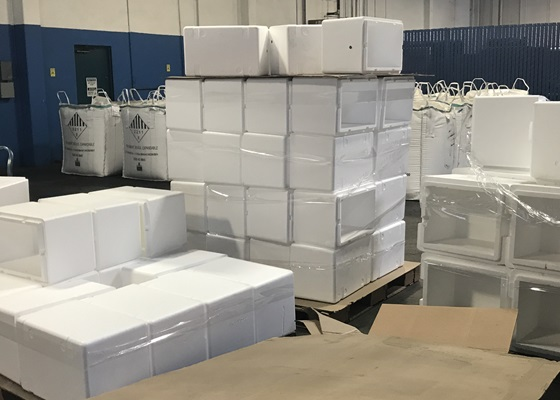Plastics Industry Association helps solve white waste problem within the industry with EPS densifier
In fact, there are many industry associations for the recycling of this kind of EPS waste, which help find recycling channels and reasonable recycling methods. Whether it is the EPS recycling machine used for recycling or the reuse of EPS compressed materials, the relevant person in charge of the association will be responsible for the research and can even help apply for subsidies in relevant areas.
The Polystyrene Recycling Alliance (PSRA), established by the Plastics Industry Association (PLASTICS), Washington, is a cooperative endeavor aimed at bringing together the expandable polystyrene (EPS) and polystyrene (PS) sectors along with a wide range of stakeholders, including recyclers, converters, and brands, in order to accomplish the objective of making PS "widely recyclable."

According to PLASTICS President and CEO Matt Seaholm, "this partnership is a huge step forward for polystyrene sustainability, enabling more Americans to recycle a wide variety of polystyrene items." Because of its intrinsic ability to be recycled, polystyrene is currently being recycled and will be recycled on a much larger scale in the future. At the Plastics Industry Association, we are proud to be pursuing this initiative to connect the entire value chain in collaborating to promote the sustainability of plastics. Recycling is real.
It's not only the United States that has such an industrial association to help recycle EPS foam. France also has relevant associations for the recycling of EPS fish boxes to help organize the recycling of used EPS waste. In fact, there are many industry associations for the recycling of this kind of EPS waste, which help find recycling channels and reasonable recycling methods. Whether it is the EPS recycling machine used for recycling or the reuse of EPS compressed materials, the relevant person in charge of the association will be responsible for the research and can even help apply for subsidies in relevant areas.
.jpg)
.jpg)
